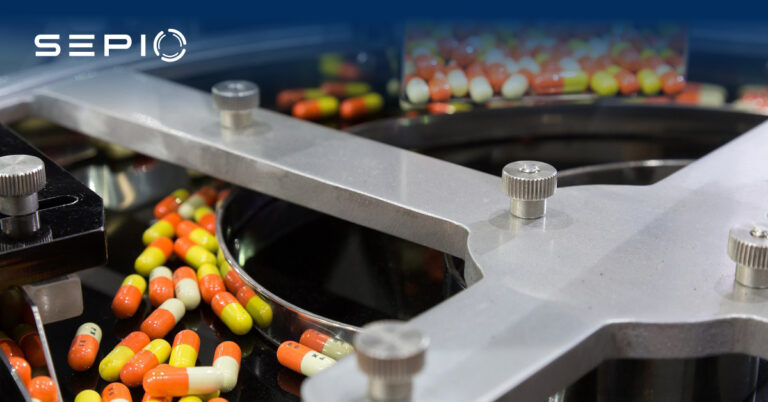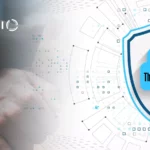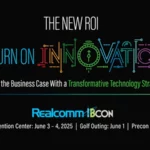Pharmaceutical industry cybersecurity has become increasingly critical as the industry continues to face rising cyber threats. The growing reliance on digital technologies makes the pharmaceutical sector a prime target for cybercriminals, highlighting the need for robust cybersecurity practices.
Cybersecurity threats in the pharmaceutical industry are especially concerning due to its vital role in public health and access to highly sensitive data. With over five billion people relying on pharmaceutical products, the industry holds immense value, making it a lucrative target for cyberattacks.
Preventing Data Breaches in Pharmaceutical Cybersecurity
Pharmaceutical cybersecurity must address data breaches and ransomware attacks, which are among the most pressing concerns in the industry. According to IBM’s Cost of a Data Breach Report, the pharmaceutical sector faces the fourth-highest average total cost of a data breach.
Malicious actors often seek valuable information, such as patient data and intellectual property. In fact, 80% of data breaches involve customer personally identifiable information (PII), and over 30% include stolen intellectual property. These figures emphasize the urgent need for stringent pharmaceutical cybersecurity measures.

Pharmaceutical entities face significant consequences when victimized by data breaches, including financial losses from lawsuits and fines. Notably, diminished trust leads to a substantial loss of business, accounting for nearly 40% of the total breach cost, according to IBM.
How to Mitigate Ransomware Risks in Pharmaceutical Companies
Ransomware poses a severe threat to pharmaceutical cybersecurity, with research from Black Kite revealing that 10% of pharmaceutical companies are highly susceptible to such attacks. Medium-sized companies are particularly vulnerable. Given the industry’s critical infrastructure role, downtime can have dire consequences, emphasizing the urgency for strong cybersecurity in the pharmaceutical industry.
In 2017, Merck & Co. experienced a devastating ransomware attack, incurring $1 billion in damages due to downtime and lost sales. This case underscores the critical importance of pharmaceutical cybersecurity, especially considering the low tolerance for operational downtime in the industry.
During high-stakes periods like the COVID-19 pandemic, the consequences can be even more severe. For example, when AmeriCold, a cold storage provider essential to vaccine distribution, was hit by a cyberattack, it exposed how vulnerable the supply chain truly is. Although the attack occurred before full-scale vaccine rollout, it still served as a warning sign.
Cybersecurity Vulnerabilities in the Pharmaceutical Sector
Pharmaceutical cybersecurity must evolve to detect hardware-based attacks, which often go undetected by traditional tools. Rogue Devices operating on the Physical Layer can bypass endpoint and network defenses, infiltrating systems without raising alarms.
What makes hardware-based threats especially dangerous is the fact that they require physical access, but once inside, they are incredibly stealthy. Implementing robust cybersecurity strategies is essential to defend against these types of attacks and protect critical infrastructure.
Understanding Cyber Risks in the Pharmaceutical Supply Chain
Cybersecurity threats in the pharmaceutical industry extend across the supply chain, which adds significant complexity. Vaccine distribution has added such complexity as vaccines must reach hundreds of millions of people across the globe, meaning more extensive distribution channels.
The more entities involved in the supply chain, the more entry points for hardware attackers, meaning higher chances of successful infiltration for hardware attackers, meaning higher chances of successful endpoint or network infiltration.
The Impact of Digital Transformation on Pharmaceutical Cybersecurity
As the pharmaceutical industry embraces digital transformation, the number of devices in use has surged, including IoT devices. This increase presents more entry points for cyber threats, especially in remote and less secure environments, underscoring the importance of comprehensive Pharmaceutical Industry Cyber Security.
Employee Vulnerabilities and Social Engineering Threats
Hardware attackers rely heavily on social engineering, and employees need to be on constant alert to prevent successful social engineering. Employees’ unintencional negligence and carelessness means they are highly susceptible to social engineering techniques.
Closing Security Gaps in Pharmaceutical Industry Cybersecurity
Although unable to detect Rogue Devices, security measures can reduce the extent of damage caused by hardware-based attack. However, pharmaceutical companies are know to lack the necessary cybersecurity capabilities for the digital platforms they operate. A lack of sufficient security only make the attacker’s job easier as there are fewer barriers in the way.
Endpoint and Network Cybersecurity
Pharmaceutical cybersecurity can’t rely on software defenses alone. While there’s no “vaccine” for cyberattacks, adopting a layered security approach dramatically reduces risk.
Hardware security remains an overlooked aspect of cybersecurity, but solutions like Sepio’s platform provide essential protection. By offering Physical Layer visibility, Sepio can detect all IT, OT, and IoT devices within a network, ensuring comprehensive security.

Sepio’s policy enforcement mechanism enables Hardware Access Control, allowing organizations to establish strict rules based on device characteristics. Moreover, Sepio quickly detects any devices breaching these policies and initiates a mitigation process to block potential threats, thereby enhancing overall pharmaceutical cybersecurity.
Protect Your Organization with Sepio
Schedule a demo with us today and see how our patented solution can protect your organization from cyber threats. Don’t wait until it’s too late, take the first step towards securing your sensitive data and intellectual property now!






